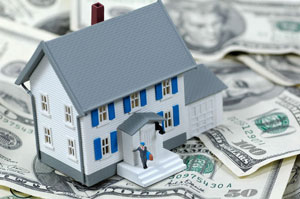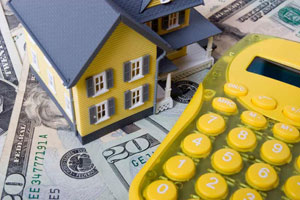How Can I Avoid The Home Equity Trap?
By Gretchen Wegrich Updated on 7/24/2017 For Americans nearing retirement: Do you stick to your original plan of selling your home and living off the profit despite the increased capital gains tax will consume a significant portion of the profit?
For Americans nearing retirement: Do you stick to your original plan of selling your home and living off the profit despite the increased capital gains tax will consume a significant portion of the profit?
Factor in the new 3.8 percent Medicare tax, and suddenly the next few years aren’t looking so “golden” anymore.
Under the capital gains tax, the amount owed is based on the lesser of your total net investment income or the amount of your modified adjusted gross income that exceeds $200,000 for individuals, $250,000 for couples filing jointly, or $125,000 for spouses filing separately.
Since an individual’s modified adjusted, gross income includes wages, capital gains, and retirement plan benefits, the capital gains tax can subject a person with relatively ordinary income to high taxes.
Particularly vulnerable to the capital gains tax are people who sell homes in expensive communities such as San Francisco and New York City, said Mark Pruner of Prudential Connecticut Realty.
Almost anyone who purchased a basic 3-bedroom, 2-bath home before 1982 in many of these higher-priced areas is going to exceed the $500,000 capital gain tax exclusion.
For example, a seller in Pruner’s hometown of Greenwich, Connecticut sold a 3-bedroom home that needed fixing up for $925,000 after purchasing the home in 1982 for just $100,000. The seller must pay capital gains taxes on $325,000 of the home sale profit at a 15 percent rate. Additionally, the new Medicare tax increases the profit tax to 18.8 percent. For profits greater than $450,000, this tax rate rises to 23.8 percent.
While this scenario mostly affects Americans heading into retirement who have lived in their homes for many years, the same capital gains tax can harm homeowners of any age.
The trap
While paying taxes on profits generated by the sale of a home is nothing new, the capital gains tax increase comes at a time when many middle-class Americans are facing challenging financial circumstances; for many, the loss of a job and a resulting increase in credit card debt.
The obvious solution is to rely on the wealth that has accumulated in a home that has appreciated in value. But maxing out credit cards will cause a bank to turn down a cash-out refinance, and a subprime lender will offer only extremely high-interest rates.
Suddenly, the only option is to sell your home.
Homeowners who took out a large mortgage to put their kids through college or purchase a second home may not even make enough from the sale of their house to pay the taxes.
“The people who are going to be most impacted by the capital gains tax are the heart of America,” said Pruner. “They bought their homes and lived in them for many years. Now, they are caught in an equity capital gains trap.”
The problem
Many middle-class Americans have too much of their housing wealth trapped in their homes to weather a financial crisis such as losing a job safely. For middle-income families who fall between the 40th and 59th percentile, 67 percent owned their primary residence, but just 16 percent owned stocks.
For typical middle-class Americans faced with a financial crisis, the problem isn’t so much a lack of wealth as a lack of liquidity or access to their wealth.
The solution
Arrange a home equity line of credit now, before you are faced with a financial crisis and find yourself in a home equity trap. Keep the line only for emergencies and do not rely on the equity in your home for routine expenses.

Didn't find the answer you wanted? Ask one of your own.
Related Articles
Ask our community a question.
Searching Today's Rates...

Featured Lenders
Cameron Burke
Vision One Mortgage
Huntington Beach, CA
Lisa Stepp
RBS Citizens
Clifton Park, NY
Kat Whitman
Whitman Met, Inc.
Sacramento, CA




